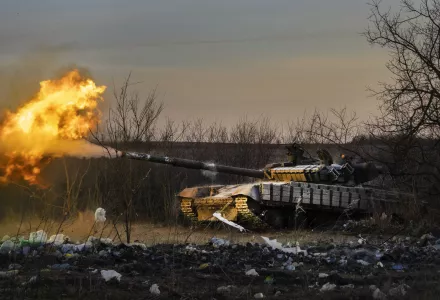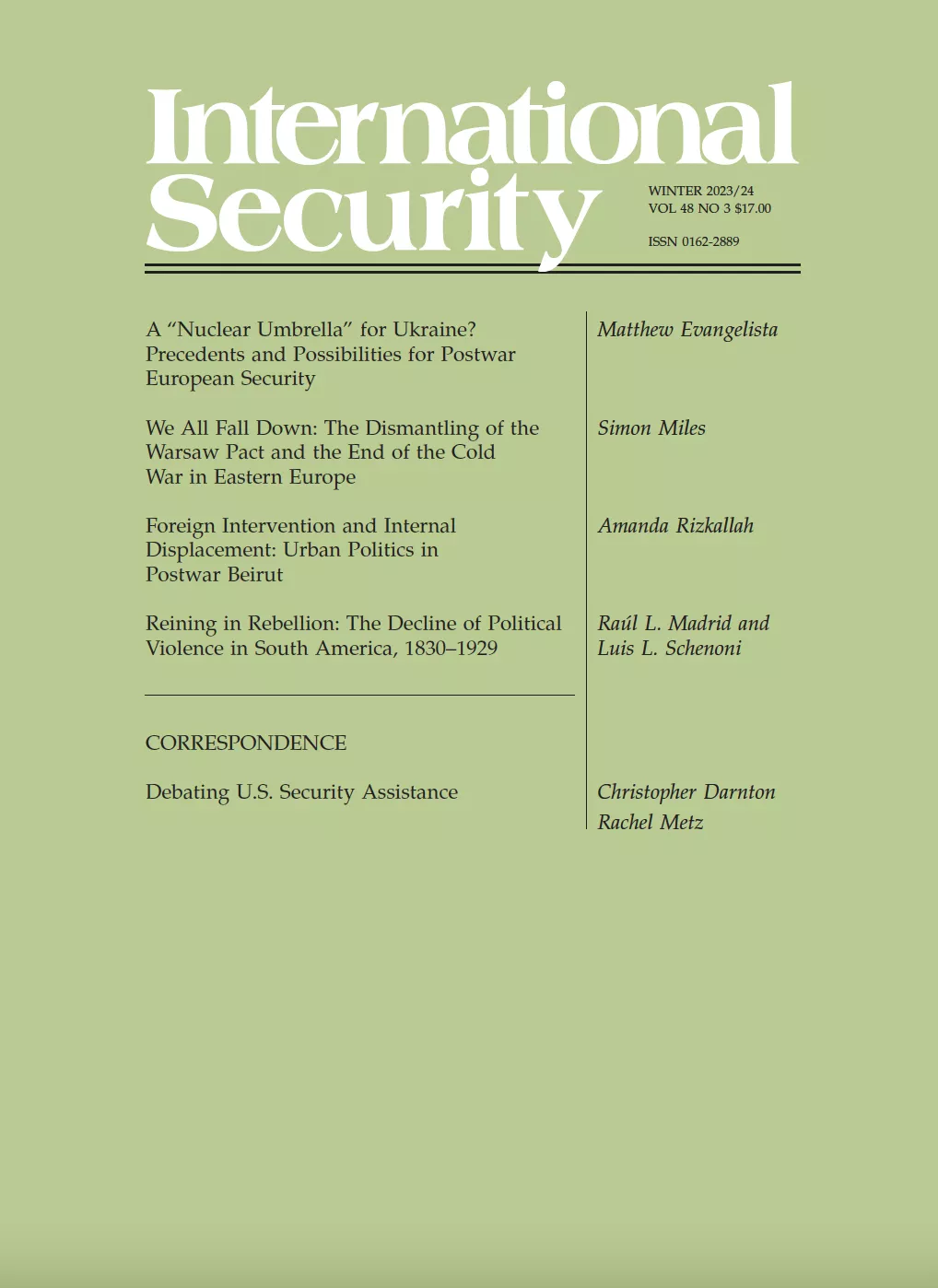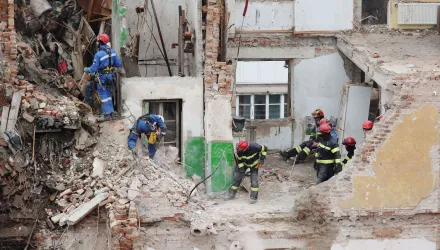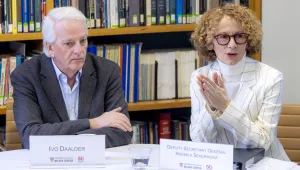
Matthew Evangelista examines the precedents and possibilities for postwar European security.

February 24, 2024, marks the second anniversary of the full-scale Russian invasion of Ukraine. The war seems endless today. Both sides are dug into trenches on the front where they fight over scraps of land and devastated cities. The return of massive ground warfare in Europe in the 21st century raises questions about future Western relations with Russia. It also raises concerns about post-war Ukrainian and Western European security. The conventional wisdom is that Ukraine will be safer once it joins the North Atlantic Treaty Organization (NATO) to shelter under the U.S. nuclear umbrella, as long as it retains major U.S. and Western European financial, military, and diplomatic support.
But what if this conventional wisdom is wrong? In his article "A ‘Nuclear Umbrella' for Ukraine?," which appears in the forthcoming issue of the journal International Security, Matthew Evangelista, President White Professor of History and Political Science in the Department of Government at Cornell University, offers valuable insights regarding European security post-Russia-Ukraine war. He argues for a new, safer approach to European security after the end of the devastating Russia-Ukraine war.
"Extended nuclear deterrence is not up to the task. It remains a costly and risky approach to Russian aggression," Evangelista argues. This strategy, he writes, "stakes too much on the hope that Putin (or his successors) would refrain from actions that could provoke nuclear retaliation — even after he has ignited the biggest armed conflict in Europe since World War II and continues to menace NATO members with the threat of nuclear attack."
The security threat from Russia is indisputable. Countering it is drawing renewed attention from scholars and practitioners. Evangelista's article, which we discuss below, offers a new lens through which to examine European security dynamics and potential pathways forward.
Could you give us a brief overview of your article?
The article examines prospects for Ukrainian and European security once the current war with Russia ends. It draws on the history of the Cold War for two purposes: to question the claim that the threat of retaliation with U.S. nuclear weapons prevented a Soviet invasion of Europe after World War II; and to investigate the potential for applying strategies of non-offensive conventional defense, which emerged as an alternative to nuclear deterrence during the 1980s, to the Ukrainian and broader European situation....
Hazelton, Jacqueline and Matthew Evangelista. “Beyond the "Nuclear Umbrella": Rethinking European Defense After the Russia-Ukraine War.” The MIT Press Reader, February 22, 2024
The full text of this publication is available via The MIT Press Reader.







